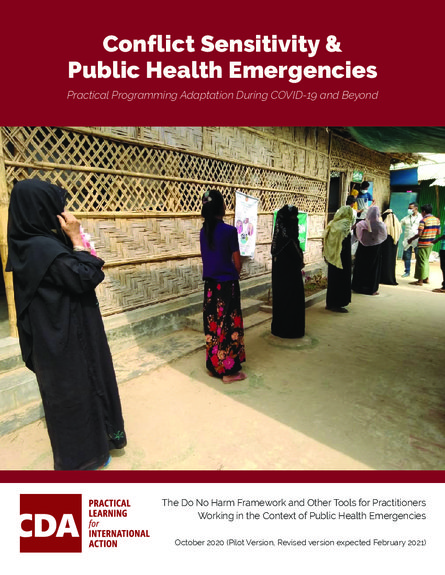
Conflict Sensitivity & Public Health Emergencies is a response to practitioner requests for guidance in addressing public health emergencies and conflict dynamics simultaneously.
What’s inside:
- Background & Context: Health and Conflict as Interconnected Systems
- Conflict Sensitivity for Public Health Practitioners
- Public Health Awareness for Peacebuilders and Humanitarians
- Challenges to Putting Principles into Practice
It has long been recognized that there is a significant overlap between public health, humanitarian, and peacebuilding concerns. Conflict is a significant factor in many determinants of public health and humanitarian outcomes, such as access to healthcare and food. In addition, public health emergencies significantly affect underlying conflict dynamics and the ability of practitioners to carry out programming in crisis zones, such as the effects of movement restrictions. However, far too often, efforts to address these concerns take place in siloes; it is far too rare to find strong and strategic integration between public health, humanitarian, and peacebuilding programming or training.
Conflict, in its active or latent forms, is everywhere. The COVID-19 pandemic has demonstrated that public health emergencies can strike any country at any time. Given the universality of and interconnections between conflict, humanitarian crises, and public health emergencies, practitioners trained in one sector or the other are being called upon to understand how to navigate all of these emergencies at once.
Practitioners who helped inform this document looked beyond the specific relationship between COVID-19 and conflict to the broader context and systems in which these dynamics exist. Conflict Sensitivity & Public Health Emergencies is inspired by the challenges the COVID-19 pandemic presents, but it is also designed to be used in any public health emergency context and systems-informed application.